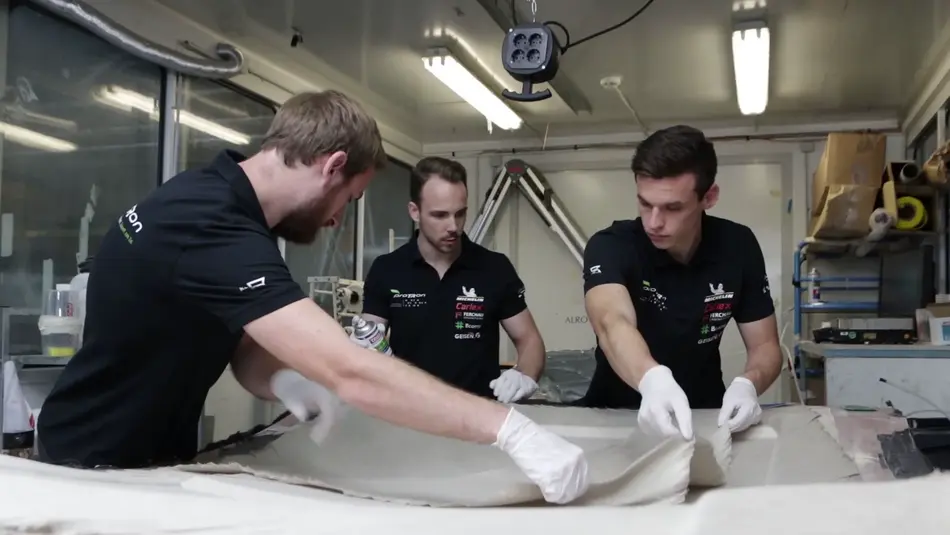
The aim of the project is to develop intelligent natural fiber composites. By means of integrated intelligent sensor technology, these natural fiber composites are also to be made usable for use in components subject to high mechanical loads.
Development of ultra-light and environmentally friendly structural components
Natural fiber composites have long been used in the automotive sector, for example for insulation and sound absorption. New findings in research into the properties of the materials have made it possible to use these composite materials as load-bearing elements in structures as well. In vehicle construction, for example, they make for particularly lightweight and thus energy-efficient and environmentally friendly design and manufacture.
Integration of intelligent sensor elements
The special innovation of the project lies in the integration of intelligent sensor elements that ensure continuous monitoring of the components during their operation. A method developed at Trier University of Applied Sciences is used here that makes it possible to measure the aging state of electrical cables as a result of mechanical stresses over their operating life. The researchers intend to integrate suitably adapted line elements as sensors into the natural fiber composites in order to evaluate the aging behavior of the entire natural fiber composite component.
Bundling of extensive know-how at Trier University of Applied Sciences
The project bundles the know-how accumulated over many years in various areas at Trier University of Applied Sciences and enables new innovative approaches. In particular, it is based on the extensive expertise in crash safety of vehicle components made of natural fiber-reinforced plastics that has been built up in the established proTRon project. The central pilot application will be the development of highly stressed structural and body parts for highly efficient vehicles.
Contribution to CO2 reduction
The new research project is intended to serve as a basis for further projects to enable the developed technology to be used in a wide range of applications. By advancing ultralight components, the scientists hope to contribute to the reduction of greenhouse gases.
Funding
The project is being funded by the Carl Zeiss Foundation under the "Transfer" funding line for universities of applied science with 1 million euros over three years.
To ensure the transfer of research results to industrial applications, industrial companies with experience in the field of composite materials have also been recruited as project partners.
| Consortium | Research Network at Trier University of Applied Sciences: Prof. Dr.-Ing. Andreas Diewald, Prof. Dr.-Ing. Klaus Peter Koch, Prof. Dr.-Ing. Peter König, Prof. Dr.-Ing. Michael Schuth, Prof. Dr.-Ing. Armin Wittmann, Prof. Dr.-Ing. Alexander Wohlers, Prof. Dr.-Ing. Hartmut Zoppke, Prof. Dr.-Ing. Dara Feili, Prof. Dr.-Ing. Heiko Bossong |
| Duration | August 2020 - July 2023 |
| Funded by | Carl-Zeiss-Stiftung in the Transfer program |
| Funding amount | 1,000,000 € |

You are leaving the official website of Trier University of Applied Sciences